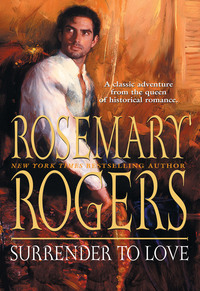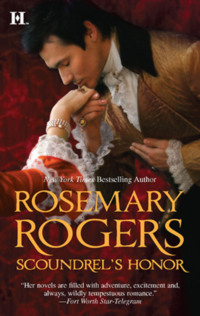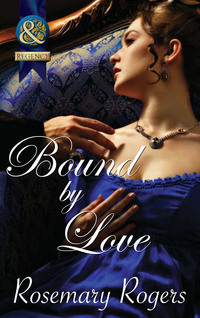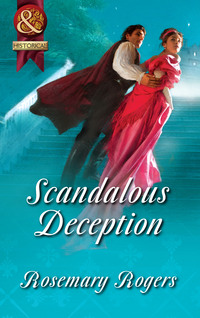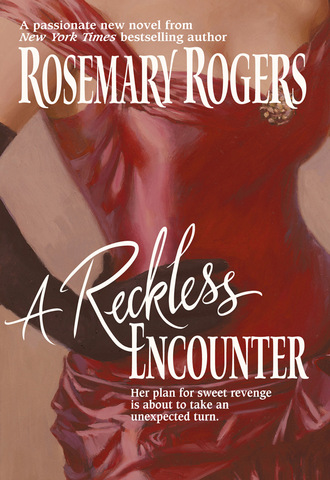
Полная версия
A Reckless Encounter
A gentle pressure of her fingers on Jacqueline’s arm was a broad hint that she wished to move on, and her cousin took the cue at once, ending the conversation.
“It is so very pleasant to see you again, sir. Do leave your calling card. As I wished to show my cousin London, we made an appointment at the dressmaker’s instead of having her to the house as usual. I insist upon being punctual.”
Harvey said hastily, “Yes, yes, of course, Lady Leverton, but I do wish to say again how fortuitous this meeting is for me. I am planning a soirée, you see, and need expert advice. Your affairs are legend for being the most popular, and if it is not too bold, I thought perhaps you would be so kind as to make suggestions.…”
He let his sentence trail hopefully, and Celia hid a smile. This Sir John was much too obvious. He’d not taken his gaze from her since hailing them, and now his hazel eyes were intent as he regarded her.
“How flattering, Sir John,” Jacqueline said. “Of course, I will be most pleased to lend my aid. When do you plan your affair?”
“When? Oh, I hadn’t thought that far ahead yet. Shall I come round tomorrow morning, perhaps, and we can discuss details? I am certain Miss St. Clair will have some superb suggestions as well.”
“You are a brash, forward young man, aren’t you?” Jacqueline’s voice held a hint of reproof that finally penetrated Harvey’s intensity, and he gave her a startled glance, then a disarming smile and impudent honesty.
“Not always. Only when I see a beautiful young woman I wish to know.”
“I see.” Jacqueline lifted a disapproving brow. “And you hope to make a good impression, I presume.”
“It had occurred to me.”
“Then you will be most dismayed to learn that you have not, sir. My petite cousine is not impressed with men who behave boorishly.”
Jacqueline took Celia’s arm and led her around him, turning back only when Harvey said lamely, “I would still like to leave my card tomorrow.”
“Only if your manners improve, sir.”
As they left him standing staring after them, Celia said faintly, “Oh my! That was rather ruthless of you.”
“Do you think so? But Harvey will not overstep his boundaries now, and word will be out that no liberties are to be taken with you. Believe me, it is a much better lesson than one could hope for, and to have Harvey at our beck and call could be beneficial. Too bad Northington did not join us.”
“Northington?” Celia’s hand shook slightly, and she curled her fingers more tightly around the strings of her small reticule. A chill wind smelled of the streets, rife with debris. She put a hand to her nose as if to ward off the stench while Jacqueline continued blithely.
“Yes, I saw him get into a hired hack, but he moved on. A pity. It would have been delightful to introduce you to him.”
A feeling of nausea swept over Celia, and her fingers were clumsy as she fumbled in her reticule for a linen scarf to press to her nose. Northington! He’d been that close and she hadn’t even known it.…
“Harvey is an intimate of Lord Northington, who is far too elusive, I fear,” Jacqueline was saying, oblivious to Celia’s reaction.
She cleared her throat. “Why is this Northington so elusive?”
“Probably because he’s weary of being pursued by so many marriageable women.” Jacqueline laughed softly. “His reputation leans toward rakish, but if a hostess manages to get him to attend an affair, success is assured. He is quite sought after—an unmarried viscount usually is these days. You’d be amazed at the lengths some hostesses go to in order to secure his presence at a ball or soirée. But a man who is heir to an earldom can take his time to wed, it seems.”
Celia sidestepped a clod of debris on the walkway, her tone calm. “So he will be an earl one day.”
“Yes, and perhaps sooner than one would think, as his father has been an invalid for several years now…a most unpleasant man—Do be careful ma petite, and beware of where you step. What was I saying? Oh, yes, Northington is very closely acquainted with Harvey. They seem to attend many of the same functions.”
“Is he?” She cleared her throat. “And you aspire to have Northington in attendance?”
“It would be a social coup. But never fear. I have already taken steps to ensure his attendance. Ah, here we are. Madame Dupre is most strict about punctuality. She’s much sought after as a seamstress and will be able to fashion you some flattering gowns. Oh, this is going to be so amusing, Celia! I’m so glad you’ve come to visit. I needed a new venture to occupy my time now that Carolyn’s future is assured.”
Celia smiled, and during the next two hours endured the prodding and poking of the seamstress as she measured her for new gowns, exclaiming over her unusual height and slender proportions.
“But you are so tall, mademoiselle! And such long legs. Rarely have I seen a woman with your proportions. It is a pleasure to fit you for gowns. So many of these English misses have figures like boards, so petite and with no female curves. Made like boys, they are, But you! Ah, you are magnificent!”
Feeling awkward, Celia managed an appropriate murmur in reply, and caught Jacqueline’s amused gaze on her.
“She is not accustomed to such praise, Madame Dupre,” Jacqueline said briskly. “But it is good for her to hear it. She must realize her worth.”
Celia’s chin came up. “I know my worth,” she said quietly.
Jacqueline laughed. “Yes, I believe you do. Very good! No unnecessary modesty, I’m pleased to see. But she is correct, you know, Celia. You are most unusual. I predict you will be a success.”
“Are you certain you wish to do this? I had not thought it important.” Celia frowned slightly. “It seems a great deal of trouble just to introduce me to your friends.”
“Ah, but it is not just to introduce you to my friends, my dear. We intend to snare you a wealthy husband, just as my own Caro has done. Of course, her marriage was arranged years ago, but before she settles into married life, I wish her to enjoy herself. But you—you have so much promise! Already there is interest. You saw your effect on Sir John, did you not? He was absolutely tripping over his own feet to talk to you. And as I said, he has extensive connections of the right sort. In London, it is imperative to be well connected.” She paused, glanced at Madame Dupre and said a bit wistfully, “In France, it was much the same. But we did not worry about appearances so much as they do here, for we were all secure in our proper places. And, of course, we all knew we were lovely and well dressed!”
Madame Dupre joined her in soft laughter, and Celia let her mind wander. If Sir John was close companions with Lord Northington, she fully intended to expand upon their brief acquaintance. Through Harvey, she could learn much about her quarry. And quarry he was, though Northington may not know it. Would he remember her? Would he even recognize the woman in the girl he had once known? Did he ever think about Léonie Sinclair, or had she been only one more woman he’d used and cast aside as unimportant.
Anger burned deeply, a low, smoldering blaze that never eased, never altered, and she thought of how delicious it would be to ruin Northington. He would pay, in whatever way she could manage, for Old Peter’s death as well as her mother’s. Everyone in London would know what he had done. If she could, she would see him hanged for murder. But that was unlikely. Vengeance would have to be tempered with practicality.
“Child,” Madame Dupre said with a puzzled look on her face, “you are so stiff, like a board! Please, you must not worry that I will stick you with a pin. I’ve not wounded many of my clients.”
Celia managed a laugh. “Forgive me, madame. I was thinking of something else. A sudden memory.”
“It must be something dreadful, to make you so stiff.”
“Yes. It was.”
“Poor child,” Jacqueline said. “You have suffered so much sorrow.”
“Not so very much,” Celia said. “Not as much as many others have suffered.”
“Perhaps you are right.” Jacqueline lapsed into a sorrowful silence that was shared by Madame Dupre, another French emigré who had fled Paris during the terrible revolution.
So many, Celia had learned during her short time here, had survived horrors. It was no wonder her mother had shied away from discussing those dark days, but spoke instead of the happier times—her love for her husband and their meeting in London.
“But come,” Madame Dupre said briskly after a moment, “we must not dwell on those things. They are past now, and we must think only of the coming Season. It will be most exciting this year, I believe, as the Prince of Wales has already begun making preparations for a grand fête.…”
As the two women chattered in French about the coming galas, Celia lifted her arms obediently as she was measured and turned this way and that, while the talk turned to silk versus satin for evening, and of course, how low should the décolletage be this year without inviting scandal.
“But I think, with her height, that she should wear the newest fashion,” Madame Dupre announced. “Waists are dropping, but necklines are still low enough to tempt the eye without being too risqué. A pointed bodice perhaps. Off the shoulders, of course, with long gloves to the elbow. No oversleeves are necessary, for she has such lovely slender arms. For this ball, tulle over white satin, do you not think? Four rouleaux?”
“No,” Jacqueline said thoughtfully. “I think perhaps flounces edged with a rollio, and the underskirt with a rouleau…definitely white for her first ball, though not that glaring white against her pale skin. And a sash of celestial blue would be so lovely…a complement to Caro’s gown as well. What a striking pair they will be!”
Jacqueline’s daughter had already been fitted for her gowns, and she had declined to accompany them for Celia’s fittings. Though not antagonistic, Carolyn was very reserved in her welcome, and there had been a certain restraint between them at first.
It had been Carolyn who dictated the rudiments of proper address, the tangle of titles so confusing that Celia made her laugh with her errors.
“No, no,” Caro had said when she mistakenly referred to a duke as Sir Charles. “Dukes are always your grace, or the duke of Marlborough, never Sir. His son would be called my lord, as would a viscount, marquess or earl. And never call anyone Lord John unless he is a younger son of a duke or marquess. It’s simple, really, if you can remember that the only nobles are princes and dukes. Everyone else, even earls, are commoners. All male peers except dukes are called Lord whatever their title name is, do you see?”
“No,” Celia said frankly, and Carolyn had laughed, easing some of the first tension between them.
“We shall continue our lessons until you know it all very well,” Caro had assured her, and the past week had been devoted to lessons in protocol as well as titles.
Oh, it was all so much to learn, and nothing could have properly prepared her for the vast differences. Soon it would all be put to the test.
After her first resistance, Celia was now glad she had yielded to the inevitable. It would give her access to Northington.
“And it is, after all, only the small Season, so you need not feel overwhelmed,” Jacqueline had said gaily. “It is quite entertaining with everyone arriving back in London after the summer heat.”
So it would be endured to achieve her goal. After that, obscurity, no doubt, and a return to America where her services would always be in demand as a French tutor. As long as she allowed no scandal to follow her…
The fickle vagaries of human nature allowed a man like Northington to ignore murder yet condemned a woman who was innocent of all crime. The memory of Maman’s shame would haunt Celia for the rest of her life.
A pregnant widow of two years was not allowed in decent homes, regardless of the circumstances. At times Celia thought bitterly that what had really killed Maman was the humiliation she had suffered.
It was true Celia was only a child then, but she’d been old enough to recognize her mother’s torment, and old enough to vow vengeance on the man responsible.…
Now, at last, she was old enough to carry out that vengeance.…
4
“Why must you take such vulgar modes of transport, Colter? You have a perfectly lovely carriage-and-four at your disposal. It’s unseemly to travel about London in hired hacks.”
Colter leaned forward, gave his mother the customary peck on her cheek. She smelled of lavender, a familiar, powdery fragrance he always associated with her. He straightened, a dark brow cocked.
“You make it sound as if I arrived in the butcher’s cart.”
“You might as well have.” Lady Moreland flicked an elegant hand at the maid to indicate where she wished her breakfast tray set. When the servant had gone, she turned to regard her son with an arched brow. “I’m pleased you found time to visit me. I began to wonder if I had offended you in some way.”
Colter braced one arm atop the mantel where a cheery fire burned behind brass firedogs. “You know why I don’t come more often.”
“Yes. I do.” She perched daintily upon an upholstered settee, still youthful and graceful despite her years. “Your father has inquired about you.”
“Has he.” Colter shifted restlessly. “Why?”
“Can a father not inquire about his son without undue suspicion?”
“Other fathers, perhaps. Not mine.” Colter moved past his mother to stare out the window into the gardens below. Stone statuary graced fading flower beds, and a fountain trickled cold water from a jug held by a Grecian goddess. Venus, he thought, though Attila the Hun would be more appropriate for the Moreland garden.
“Really, Colter,” his mother said behind him. “You should make more effort to compromise.”
He turned to face her. Thin sunlight streamed through the windows, creating an aura around Lady Moreland that was almost ethereal. She resembled an elegant stone angel, save for the faint lines of strain that fanned from the corners of her eyes. Her hand shook slightly as she poured hot chocolate into a cup; rich aromatic steam rose in wispy tendrils. She didn’t look at him, her attention focused upon the silver tray laden with biscuits, cake and serving ware.
He scowled at her obvious tension.
“What has he been on at you about? Don’t deny it. You can’t even look at me. Christ above, what tear is he on now that he’s upset you?”
Anger edged his words, made them hard and brittle so that his mother set down the china pot and folded her hands in her lap before she looked up at him.
“It’s that business with the East India company. The new docks that he’s financing have gone beyond the budget, and he’s convinced that his uncle is involved in a scheme to ruin him.”
“Given Philip’s propensity for idleness, I find that accusation unlikely.” Colter shrugged when his mother made a small sound of dismay. “You must admit all the animosity seems to come from my father. While Philip may resent the fact that my father inherited when fever took the first heir, he hides it well enough. And he’s too bloody lazy to scheme.”
“You shouldn’t talk about your great-uncle that way. Or your father, for that matter. Really, whatever has gotten into you lately? You were once quite pleasant. Now—”
“Now I’m the reckless Lord Northington, heir to a title and my father’s reputation. I can no longer afford to be pleasant. If Grandfather had only lived awhile longer, perhaps we could have all been set free. It was a damned nuisance that he contracted a fever and shared it with the only heir capable of decency. My father’s lucky star again, that he inherited after all.”
The countess looked distressed, and Colter cursed his harsh tongue. The same fever that had taken the sixth earl and an uncle had also taken his older brother Anthony, the heir, an unexpected death his mother still deeply mourned and his father cursed.
He crossed the small sitting room and sat beside his mother on the striped brocade settee in front of the fire.
“I’m in a wicked mood, ma mére. It has nothing to do with you. I’ll go up and see him before I leave. I always do, don’t I?”
“Yes.” Blue eyes not quite as bright as his stared at him with a searching penetration. “You always do your duty. You’re an honorable man.”
“Don’t let that get about. I want nothing to sully my reputation as a scoundrel and a rake, if you don’t mind. It’s much more convenient to have anxious mamas avoid me rather than push their horse-faced daughters in my direction.”
A faint smile touched the corners of her lips. “Not even your sullied reputation will divert some, I’m afraid. Your presence at a fête has been requested by one of my dearest friends, and I trust you won’t disappoint me.”
Colter lifted an ironic brow. “How grim.”
“Just make an appearance. You aren’t required to stay long.”
“Which of your friends is ruining my evening with a room filled with chattering ninnies, may I ask? Or do you intend to surprise me—God, it’s not Lady Throgmorton, I trust.”
“No, not even I would be so cruel as to make that demand of you. It’s Lady Leverton. She’s been my dear friend for some time. Her daughter was just presented to the prince and is to be wed next summer, but apparently wishes to enjoy the small Season. She also mentioned that her cousin’s daughter from the Colonies will be presented. A charming girl, I understand. Quiet, and not prone to giggling or stammering. I find that refreshing these days.”
Colter thought of Harvey and the young woman who had accompanied Lady Leverton. He was wrong. London was small enough for coincidences, after all.
And it couldn’t have come at a more perfect time.
“Since you ask it of me,” he said, and saw his mother’s surprise, “I’ll let you fling me to the wolves. Just don’t expect me to linger for the coup de grace.”
“Really, Colter.”
“Ah, now I’ve earned your reproach. I should offer my apologies to you.”
“Yes, you should. But all will be forgiven if you pay particular attention to Lady Leverton’s cousin. I’ve been assured she has excellent manners. Be charming enough to assure her success, but do not be too charming. No sense in giving the wrong impression to either the young lady or to Lady Leverton.”
“Now I see your plot. You’re a disgraceful schemer, and should be ashamed, but I see that you have no scruples at all. You know I hate to be charming.”
“But you do it so effortlessly when you choose.” Her smile was serene. “You surprise me, Colter. I thought it would take much more to wring an agreement from you.”
“You know I’ve never been able to refuse anything you ask of me.”
“Then I ask that you be agreeable to your father. Ah. I see that doesn’t get an immediate response from you. Are you more able to refuse me now?”
“Let’s just say I’d rather clean the Aegean stables. It would be less messy, and far more successful.”
Unperturbed by his observation, she said, “Excellent. Now, be so good as to visit your father before he sends Brewster down to fetch you. He’s already in a rare mood. Try not to quarrel with him.”
Rising to his feet, Colter regarded his mother for a brief moment. She sat erect as she always did, her bearing innately aristocratic. It was a posture he had come to associate with times of duress, an indication that the earl was behaving toward her with more than just his usual perversity. He bent over the hand she held out to him.
“I’ll visit the dragon, but I make no promises. He can hire whipping boys. I refuse to be one.”
“Just—” She paused, then said softly, “Just try to remember his illness.”
“His illness has little to do with his nature. If you prefer to forget that, I choose to remember.”
The countess said nothing, but her eyes held a sorrowful recognition of the truth. He felt like a bloody bastard reminding her of it.
The earl was irascible as always, made even more petulant by his chafing against the infirmity that kept him confined to his chamber most of the time. His valet, Brewster, hovered nearby, tending him solicitously despite the old man’s impatience.
“It’s about time you had the decency to answer my summons,” Moreland growled, glaring at Colter from beneath a heavy shelf of brow. “You’ve become damned insolent.”
“Yes. Is there something specific you wished to speak with me about?”
Moreland’s glare held evidence of his old vigor, but his hand shook as he gripped the coverlet over his legs with a knotted fist. “It may interest you to learn that one of our ships is apparently lost at sea with a valuable cargo. Or perhaps your business acumen isn’t sharp enough to understand what that means to our financial interests.”
The earl glared up at him, his insult left hanging in the air. Colter shrugged.
“No, probably not. Will it affect my inheritance?”
The earl’s jaw clenched; a muscle leaped beneath his pitted skin. “It should have been you who died instead of Anthony. He was a fitting heir, with a true sense of his heritage. Damn you, you’re your mother’s son—a weakling, a profligate without proper appreciation for the Moreland heritage!”
“Yes, I certainly agree with that. Tony should have been your heir. He aspired to your legacy, after all, while I prefer my amusements to be willing.”
Colter’s gaze was riveted on his father, but he heard the soft click of the closing door that indicated Brewster had deemed it wise not to be privy to this particular conversation. The valet was noted for his discretion, a wise habit that had kept him in the earl’s employ for the past twenty years.
“I never know what the bloody hell you’re talking about these days,” Moreland snapped. The bank of windows behind him filtered light that softened the earl’s sagging features but not his harsh tone. “You make these obscure remarks that are completely incomprehensible.”
“Yes, so it seems. Do you refer to the India, by any chance? It is reported to have gone down off the islands near Lubang. She was carrying a full cargo of spices and specie, according to my sources.”
Moreland snorted. “Which we can ill afford to lose. As you are a major shareholder in the company, and now the family representative, you must meet with the board. A cursed business. First, the docks have gone beyond budget and now this! We have creditors who’ll want an explanation for the ship’s loss.”
“No doubt. The obvious explanation will certainly not suffice. I presume Leatherwood has the ship’s manifests and budget reports I’ll need.”
“Yes. Placate the board, Northington. We must have time to recover from this loss. We can’t risk losing investors. It would cause far too many complications.” The earl squinted up at his son, his mouth set in a bitter slash. “I’ve often wondered if my father somehow knew the trouble it would cause me to have you on the board. If he’d only left me those crucial shares…”
As the earl’s voice trailed into silence, Colter reflected that his grandfather had certainly known what he was doing. The former earl had done what he could to curtail his heir’s access to the family fortune. As no doubt the present earl would continue to do to his own heir.
“Do not,” the earl added tersely, “speak of this to my uncle. The less Philip knows at the moment, the better I like it.”
“I wasn’t aware Philip was involved.”
“He’s not. Or shouldn’t be. But curse him, he manages to find out about my business affairs far too often, and I don’t trust him.”
“Such familial devotion,” Colter observed dryly.
“No more so than he’s exhibited for me. He has always thought the title should belong to him upon the death of my grandfather. ‘The younger son should inherit his father’s estate, not the grandson,’ he said. Rubbish!”
“So you claim, yet I’ve never heard a word spoken about it from Philip. He seems quite content with his inheritance. He enjoys being an idle gentleman.”
Moreland snorted. “Don’t be fooled by his pretense of complacence. You consider me ruthless, but I assure you that my uncle has refined the art.”





